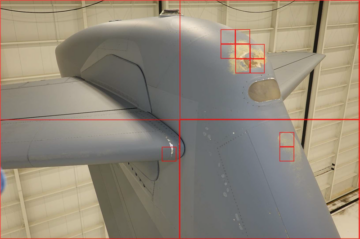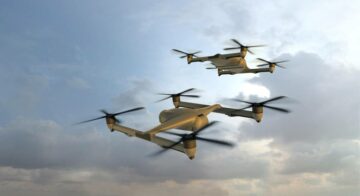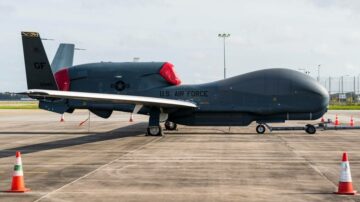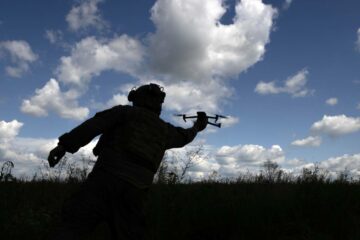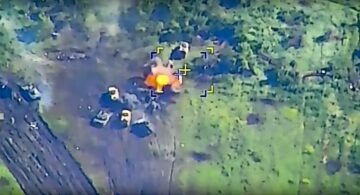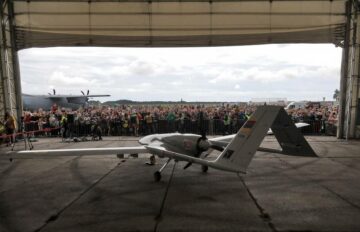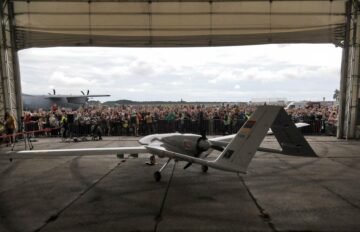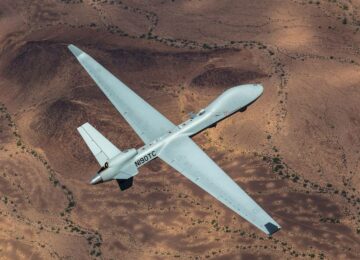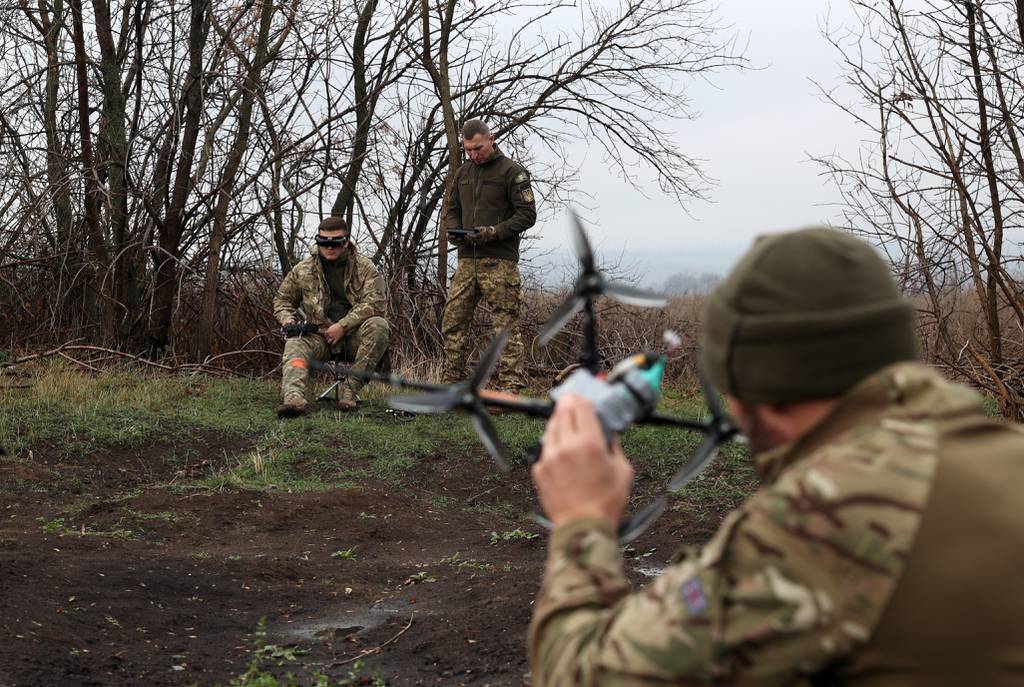
WARSAW, Poland — Polish defense leaders plan to embed drone capabilities into all levels of the armed forces, building a new military component devoted to unmanned aircraft and speeding up their acquisition.
The envisioned transformation comes after studying the lessons gleaned from Russia’s full-scale invasion of neighboring Ukraine and Kyiv’s ensuing defensive operations, now in their third year.
“Unmanned systems allow to gain advantage at relatively low costs,” a spokesperson for the National Ministry of Defense told Defense News. “The ministry will intensify the dronization process of the Polish military in specific areas of their use: reconnaissance, combat, and support.”
That means even small formations of soldiers will have access to an arsenal of unmanned aerial vehicles, or UAVs, the official explained. “Experience with the use of drones across our eastern border [with Ukraine] indicates the validity of their use at the lowest levels of command, so that, for instance, a platoon commander could have reconnaissance UAVs at their disposal, and be able to hit close targets with UAVs or use so-called ‘kamikaze’ drones.”
Observations from the war in Ukraine also have prompted Polish plans to launch a new military component, the Drone Forces, according to Władysław Kosiniak-Kamysz, the country’s Deputy Prime Minister and Minister of National Defence.
Speaking earlier this year at a session of the National Defence Committee of the Sejm, the parliament’s lower chamber, Kosiniak-Kamysz described the envisioned organization as a “separate component at operational level.” The idea came from Gen. Wiesław Kukuła, the chief of the General Staff, he said.
Amid those plans, buying and fielding new drones is a priority for officials here, with ongoing acquisitions to be accelerated.
The Polish military has acquired various types of UAVs over the past years. These include Bayraktar TB2 drones equipped with anti-tank missiles. Warsaw ordered 24 such drones from Turkish manufacturer Baykar in 2021, and their deliveries began in 2022.
“The last of the four sets [ordered from Baykar] is currently in the process of being transferred to the armed forces,” the defense spokesperson said.
Poland is also negotiating the acquisition of MQ-9B SkyGuardian drones from General Atomics, following a period of leasing the MQ-9A Reaper model. The potential purchase of an undisclosed number of aircraft is poised to make the nation’s armed forces the first military on NATO’s eastern flank to buy the medium-altitude long-endurance (MALE) UAV.
Asked by Defense News about the program, the spokesperson would only confirm that “there is a plan to purchase MQ-9B unmanned reconnaissance and strike systems.”
“Looking at the next programs, as part of the Zefir program, we intend to acquire MALE-class unmanned aerial systems,” the spokesperson said, noting that a separate effort is ongoing under the Gryf program to field a shorter-range variant. For the Polish Navy, a separate effort exists to buy rotorcraft drones under the Albatros program.
Polish privately-owned defense company WB Group has supplied two types of drones to the country’s military: FlyEye mini UAVs, which are used for reconnaissance, artillery guidance, search and rescue, but also to extend the range of battle management systems; and Warmate drones, which combine reconnaissance capacities and combat capabilities as loitering munition.
While orders placed with foreign UAV manufacturers and privately-owned Polish drone makers have allowed Poland to gain new capabilities, the troubled UAV contract the previous government awarded to state-owned PGZ in 2018 has become a model example of inefficient procurement, local observers say.
Under the deal, a consortium of state-owned defense companies was to deliver 30 short-range reconnaissance Orlik drones for about 790 million zloty ($200 million). Since then, numerous annexes were added to the contract to extend the delivery schedule.
Kosiniak-Kamysz said that he expects PGZ to immediately come through with the work. “The military has lost patience in this matter,” he said. “In 2021, those drones were to be delivered, and they have not been delivered to date,” he said said April 5.
The coming months will demonstrate how PGZ’s new management intends to tackle the problematic drone contract. Last month, Krzysztof Trofiniak was named as the company’s new chief executive. A seasoned defense industry manager, Trofiniak’s track record includes serving as the president of local defense company Huta Stalowa Wola and as vice president of PGZ. His return to the defense giant was facilitated by the October 2023 election in which a new coalition government was sworn in, ousting the right-wing Law and Justice party from power after eight years of rule.
Jaroslaw Adamowski is the Poland correspondent for Defense News.
- SEO Powered Content & PR Distribution. Get Amplified Today.
- PlatoData.Network Vertical Generative Ai. Empower Yourself. Access Here.
- PlatoAiStream. Web3 Intelligence. Knowledge Amplified. Access Here.
- PlatoESG. Carbon, CleanTech, Energy, Environment, Solar, Waste Management. Access Here.
- PlatoHealth. Biotech and Clinical Trials Intelligence. Access Here.
- Source: https://www.defensenews.com/global/europe/2024/04/08/polish-defense-leaders-push-dronization-of-the-armed-forces/
- :has
- :is
- :not
- $UP
- 2018
- 2021
- 2022
- 2023
- 24
- 30
- 5
- 70
- a
- Able
- About
- accelerated
- access
- According
- acquire
- acquired
- acquisition
- acquisitions
- across
- added
- ADvantage
- After
- aircraft
- All
- allow
- allowed
- also
- an
- and
- April
- ARE
- areas
- armed
- Arsenal
- AS
- At
- awarded
- Battle
- BE
- become
- been
- began
- being
- border
- Building
- but
- buy
- Buying
- by
- came
- capabilities
- capacities
- Chamber
- chief
- Chief Executive
- Close
- coalition
- combat
- combine
- come
- comes
- coming
- command
- committee
- Companies
- company
- Company’s
- component
- Confirm
- consortium
- contract
- Costs
- could
- country’s
- Currently
- Date
- deal
- defence
- Defense
- defensive
- deliver
- delivered
- Deliveries
- delivery
- demonstrate
- deputy
- described
- disposal
- drone
- Drones
- Earlier
- eastern
- effort
- eight
- Election
- embed
- ensuing
- envisioned
- equipped
- Even
- example
- executive
- exists
- expects
- explained
- extend
- facilitated
- field
- First
- following
- For
- Forces
- foreign
- four
- from
- full-scale
- Gain
- Gen
- General
- giant
- Government
- Group
- guidance
- Have
- he
- here
- his
- Hit
- How
- HTTPS
- idea
- images
- immediately
- in
- include
- includes
- indicates
- industry
- inefficient
- instance
- intend
- intends
- into
- invasion
- jpg
- Justice
- Last
- launch
- Law
- leaders
- Lessons
- Level
- levels
- local
- lost
- Low
- lower
- lowest
- make
- Makers
- male
- management
- manager
- Manufacturer
- Manufacturers
- Matter
- means
- Military
- million
- minister
- ministry
- missiles
- model
- Month
- months
- Named
- National
- Nations
- neighboring
- New
- new Chief
- news
- next
- noting
- now
- number
- numerous
- observers
- october
- of
- official
- officials
- on
- ongoing
- only
- operational
- Operations
- or
- orders
- organization
- our
- over
- part
- party
- past
- Patience
- period
- placed
- plan
- plans
- plato
- Plato Data Intelligence
- PlatoData
- poised
- Poland
- Polish
- potential
- power
- president
- previous
- Prime
- prime minister
- priority
- process
- procurement
- Program
- Programs
- purchase
- Push
- range
- record
- relatively
- rescue
- return
- Rule
- Said
- say
- schedule
- Search
- seasoned
- separate
- serving
- session
- Sets
- since
- small
- So
- specific
- spokesperson
- Staff
- state-owned
- strike
- Studying
- such
- supplied
- support
- Systems
- tackle
- targets
- that
- The
- their
- then
- These
- they
- Third
- this
- this year
- those
- Through
- to
- told
- track
- track record
- transferred
- Transformation
- Turkish
- two
- types
- UAV
- Ukraine
- under
- use
- used
- validity
- Variant
- various
- Vehicles
- vice
- Vice President
- war
- War in Ukraine
- Warsaw
- was
- we
- were
- which
- will
- with
- Work
- would
- year
- years
- zephyrnet


